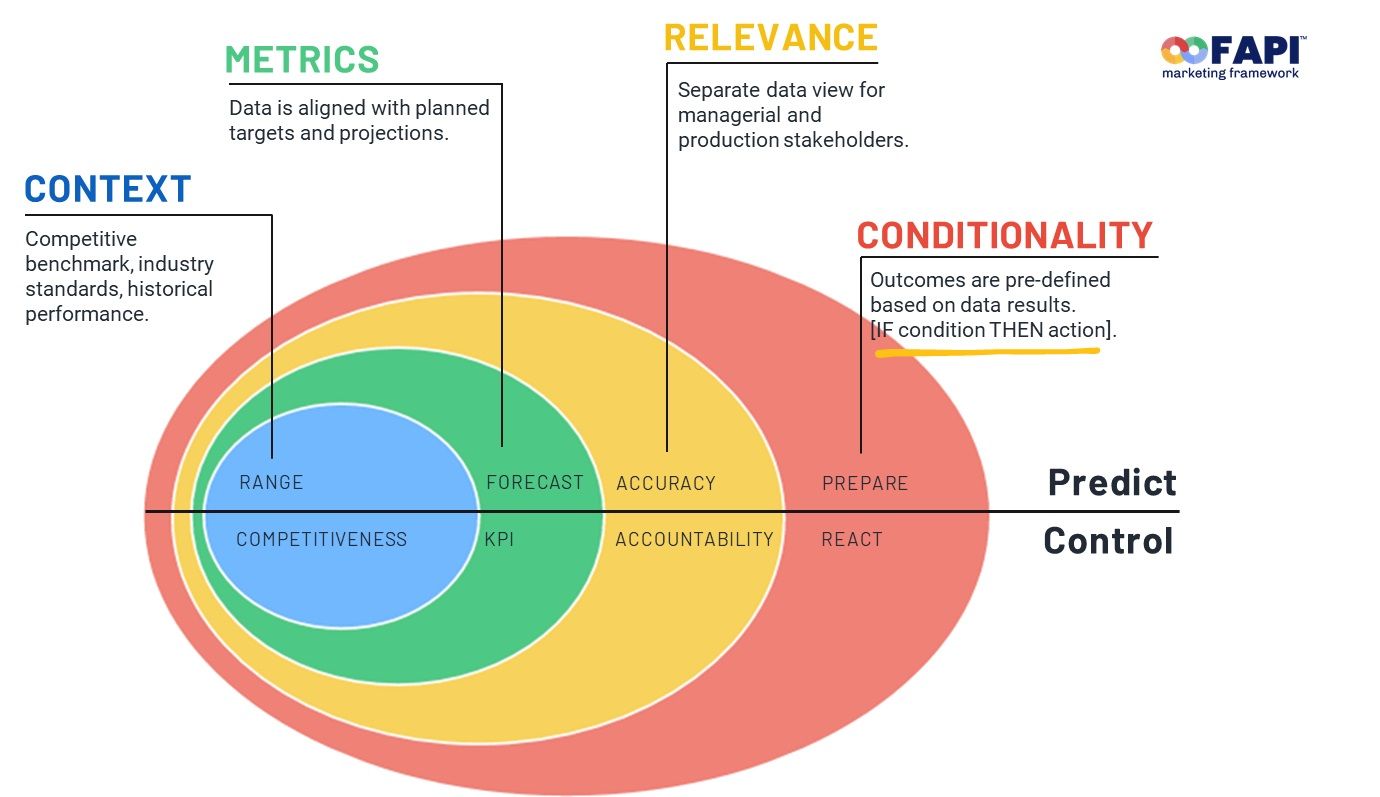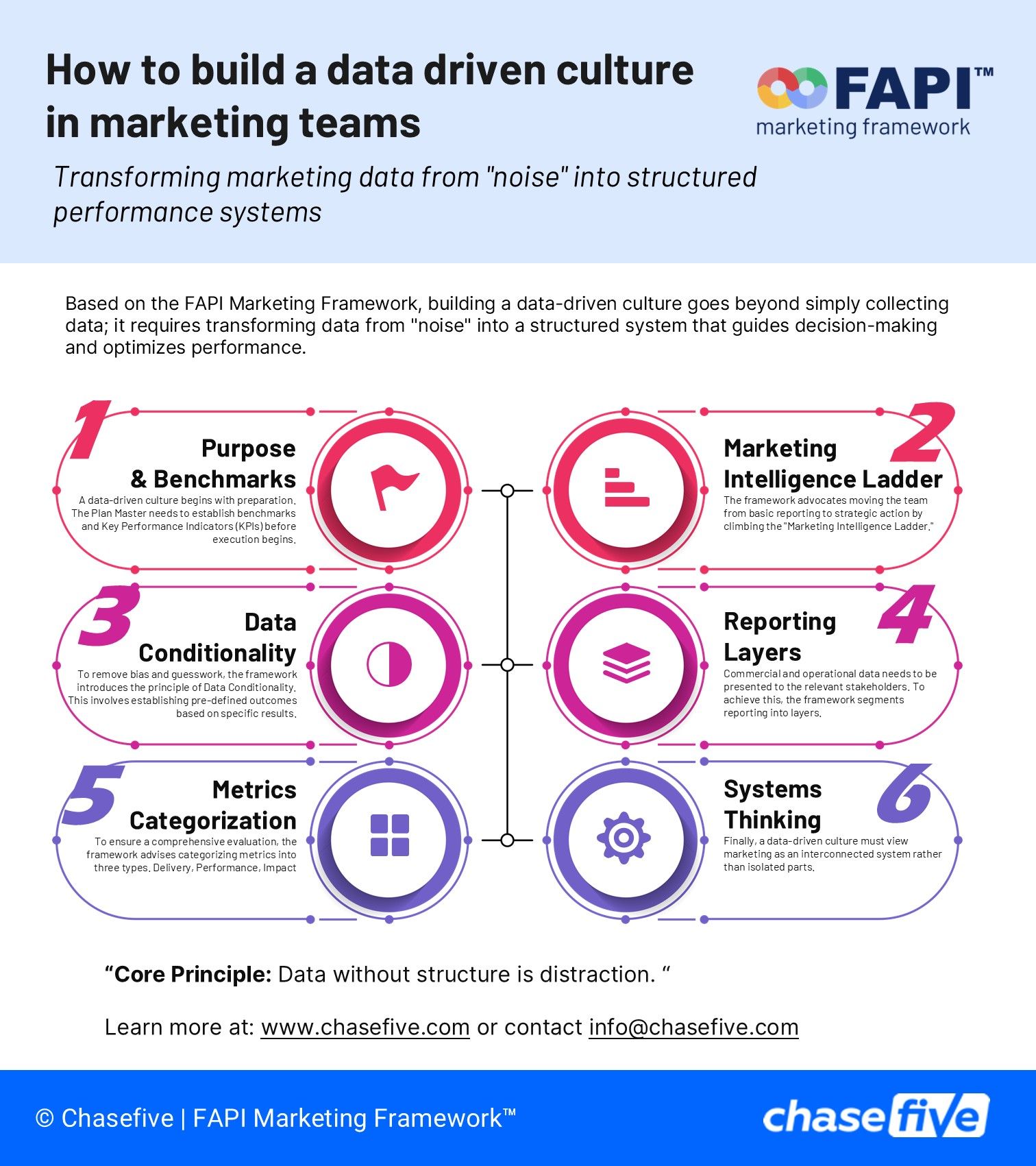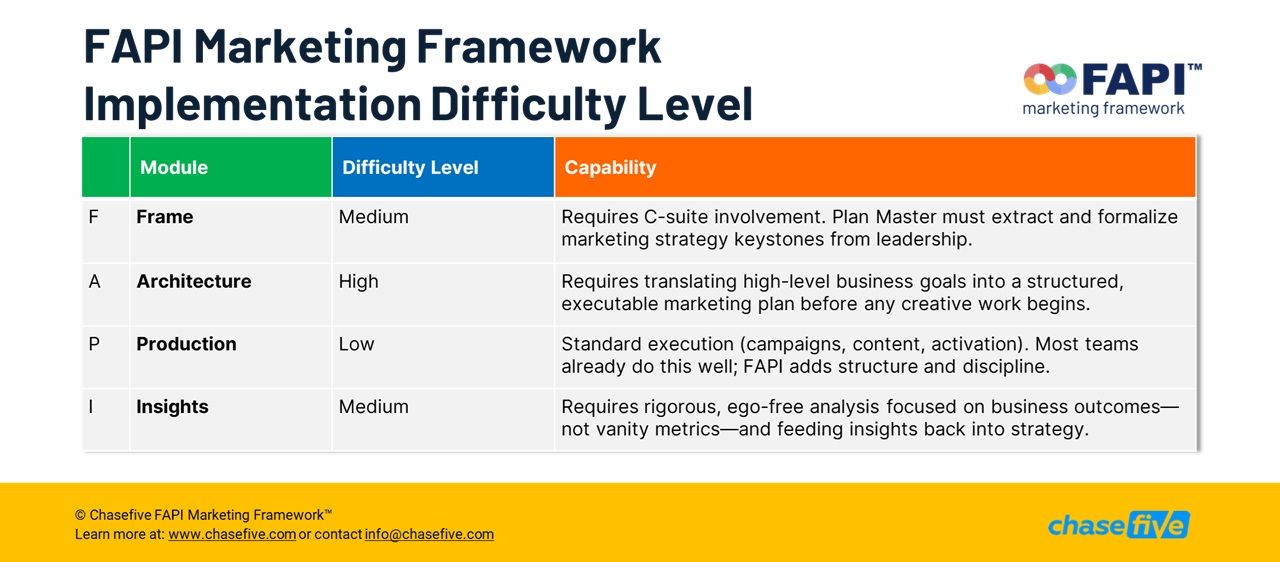Maximizing marketing effectiveness through marketing Data Conditionality
Effective marketing relies heavily on analyzing data, which is essential for accurate forecasting and guiding strategies that improve performance, including prediction and control.
Achieving optimal interpretation of data and forecasting performance requires the right combination of Context, Metrics, and Relevance.
Conditionality is critical for taking timely and appropriate action.

Context is critical in gaining a comprehensive understanding of competitive benchmarks, industry standards, and historical performance. Lacking this context, marketing strategies may become misaligned with overarching business objectives, leading to suboptimal decision-making processes and potentially compromising the competitive edge.
In terms of Metrics, it is essential to align data with predetermined targets and projections. It's imperative to categorize metrics into delivery metrics, performance metrics, and impact metrics. This categorization is crucial for a thorough evaluation of various facets of marketing effectiveness, enabling more strategic decision-making and measurement of business impact.
- Delivery Metrics: These are cantered around quantitative goals and focus on specific tasks or actions that need to be completed. They provide insight into the extent of task execution and operational efficiency, acting as indicators of whether the marketing activities are being carried out as planned.
- Performance Metrics: These metrics are aligned with qualitative goals and are designed to assess the desired outcomes. They evaluate the effectiveness of the marketing activities, measuring aspects like customer engagement, brand perception, and overall satisfaction. Performance metrics help in understanding how well the marketing efforts are resonating with the target audience.
- Impact Metrics: The most crucial, these metrics gauge the influence of marketing activities on the overall strategic plan. They look at the long-term effects and contributions to broader business objectives, such as market share growth, return on investment (ROI), and sustainable competitive advantage. Impact metrics provide a holistic view of how marketing efforts contribute to the company's success and strategic direction.
Relevance pertains to customizing data perspectives to cater to the specific needs of diverse stakeholders, including managerial and production teams. This customization ensures the data's applicability and utility to all relevant parties.
Conditionality involves the establishment of predetermined outcomes, contingent upon specific data results. This approach, encapsulated by the 'if condition then action' framework, is instrumental in creating structured and responsive marketing strategies.
Integrate these insights on data analysis and marketing planning seamlessly with the FAPI Marketing Framework. Discover how to elevate your strategies and gain a competitive edge. Learn more at FAPI Marketing Framework.







